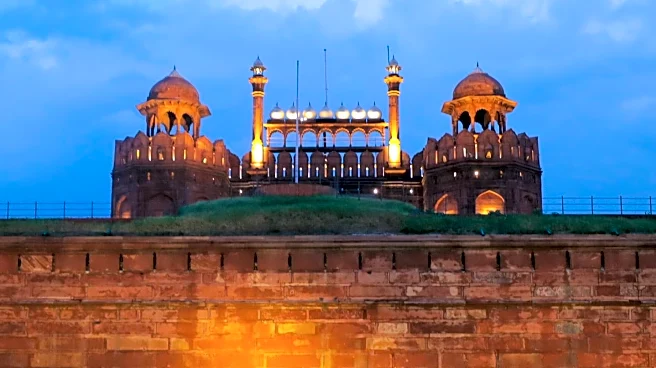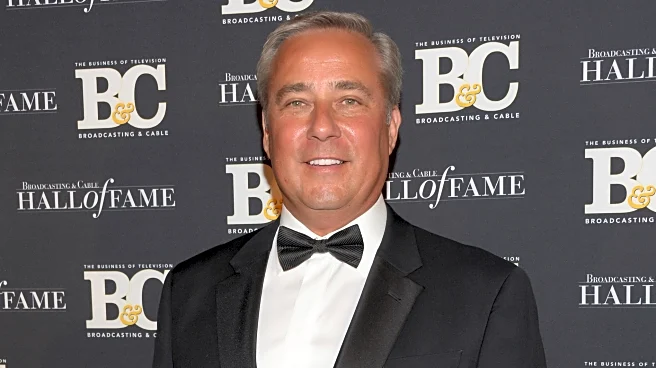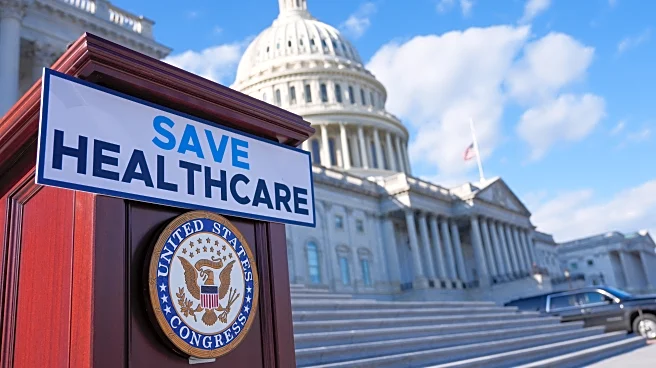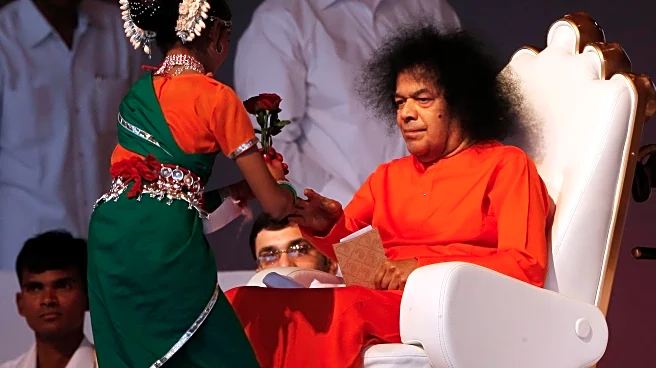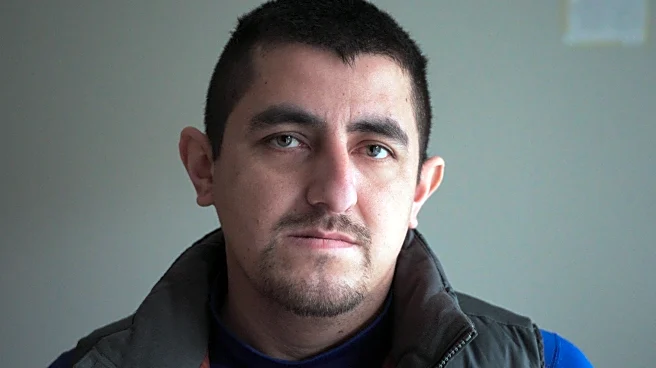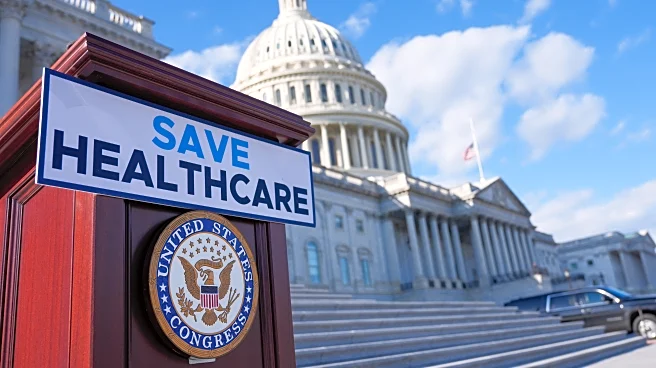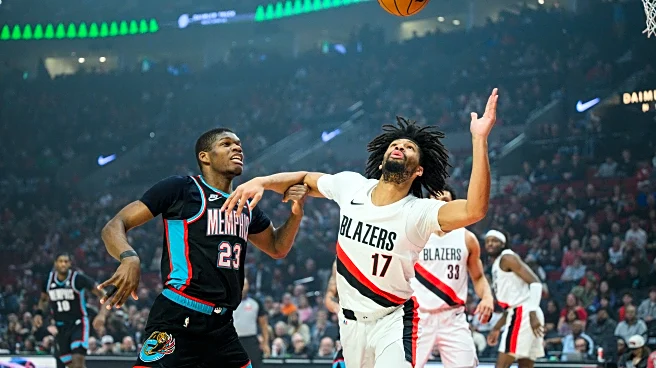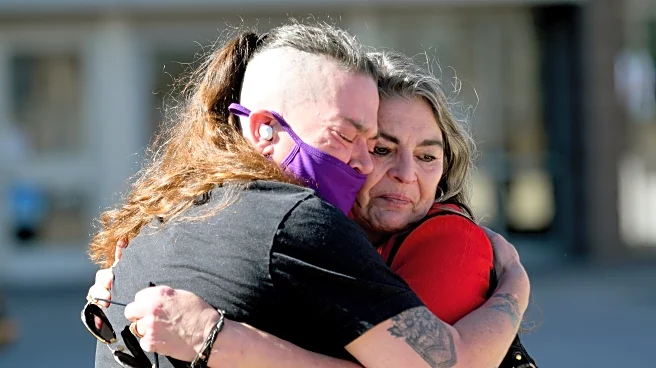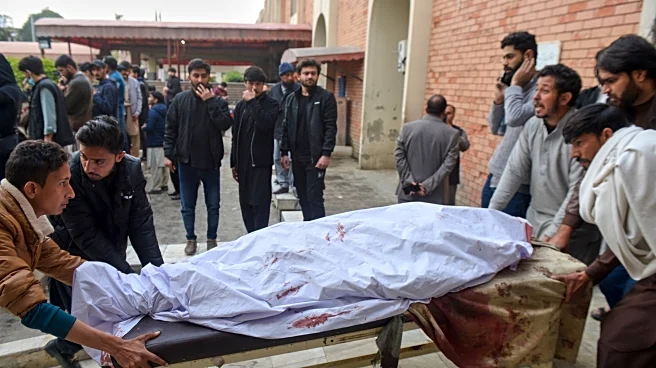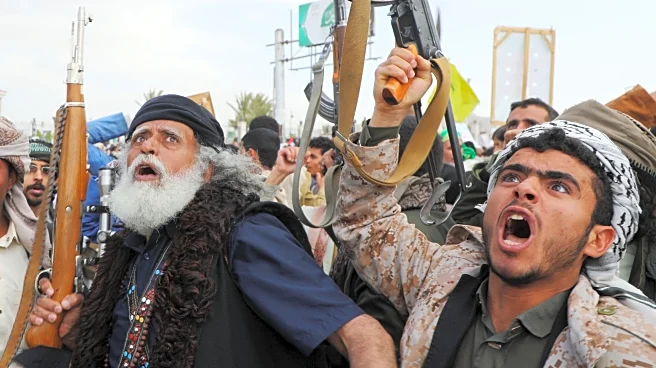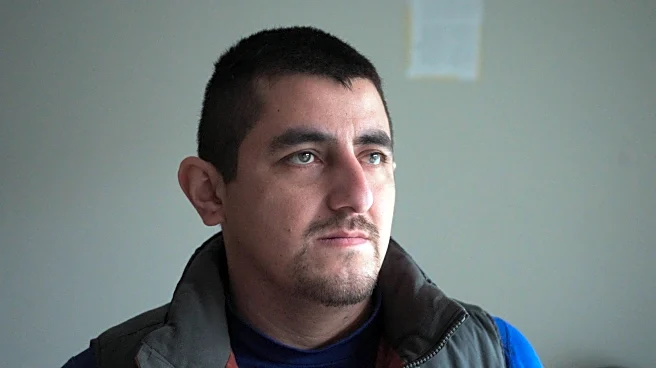What's Happening?
New Delhi is experiencing severe air pollution following the Diwali festival, where extensive use of fireworks has led to hazardous smog conditions. The city's Air Quality Index has surpassed 350 in several areas, a level deemed 'severe' by the World
Health Organization. Despite a court ruling allowing only 'green firecrackers' that emit fewer pollutants, the regulation was largely ignored, contributing to the pollution crisis. The smog has reduced visibility and enveloped the city in a gray haze, affecting daily life and tourism. Measures to curb pollution, such as restrictions on construction and diesel generators, have been implemented, but environmentalists argue that long-term solutions are necessary.
Why It's Important?
The severe smog in New Delhi highlights the ongoing struggle with air pollution in one of the world's most polluted cities. This situation underscores the need for effective environmental policies and enforcement to protect public health and the environment. The pollution not only poses immediate health risks but also affects solar power generation and agricultural productivity due to reduced sunshine hours. The event serves as a reminder of the broader implications of pollution, including its impact on climate change and economic activities.
What's Next?
Authorities in New Delhi may face increased pressure to enforce stricter pollution controls and explore sustainable alternatives to traditional firecrackers. The situation could prompt further legal and policy discussions on environmental regulations and the need for cleaner energy sources. Public awareness campaigns and international cooperation might also play a role in addressing the pollution crisis.
Beyond the Headlines
The smog crisis in New Delhi reflects broader environmental challenges faced by rapidly urbanizing regions. It raises ethical questions about balancing cultural traditions with environmental sustainability. The situation also highlights the potential for technological innovation in developing eco-friendly alternatives to traditional practices.
